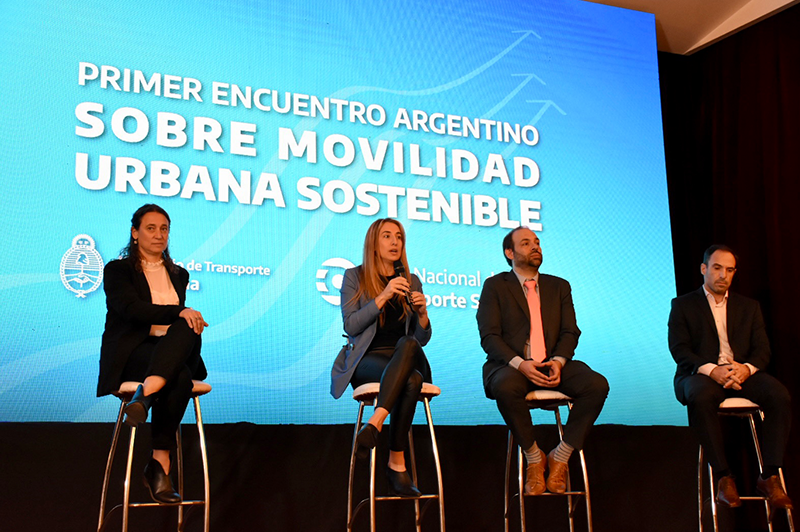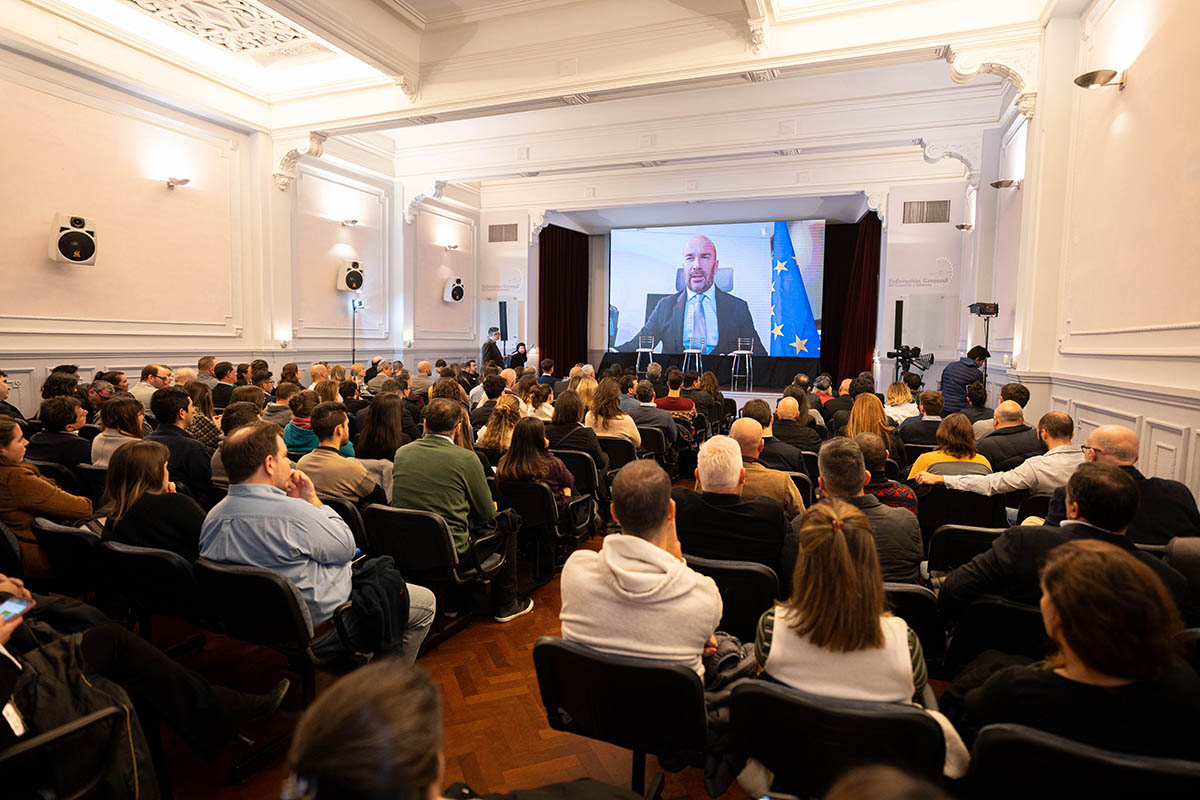With the support of Euroclima, 10 Argentine cities gathered to advance in the development of their Sustainable Urban Mobility Plans.
From July 6 to 7, the First Argentine Meeting on Sustainable Urban Mobility was held, bringing together local and national government entities of Argentina, academia, the private sector, and international organizations with the aim of promoting dialogue and collective reflection for Argentine cities to move towards safe, inclusive, accessible, and more environmentally friendly mobility.
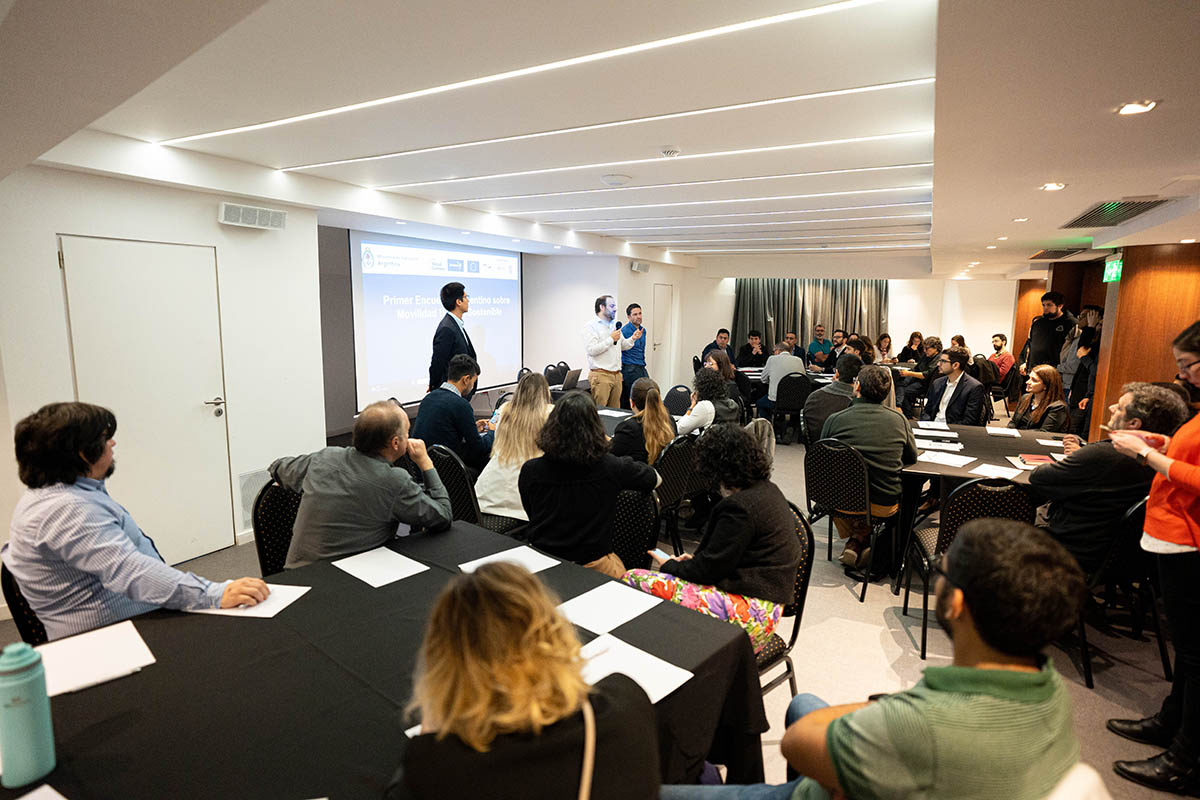
The event was led by the Ministry of Transport of Argentina within the framework of the Euroclima program, through the action "Development of Local Plans for Sustainable Urban Mobility". This initiative is part of the Euroclima Argentina Action Plan and seeks to improve technical capacities for municipalities to develop urban mobility planning that prioritizes sustainable modes, addresses the challenges of Argentine cities in terms of transportation and contributes to the reduction of polluting emissions in the sector.
The first day of the Meeting focused on working sessions with the Argentine cities that are beneficiaries of the Euroclima program. The second day consisted of a high-level public event that brought together representatives from the Ministry of Transport, Ministry of Environment and Sustainable Development, Ministry of Economy, as well as subnational entities.
Representatives of the French Development Agency (AFD) and the Deutsche Gesellschaft für Internationale Zusammenarbeit (GIZ) GmbH, implementing agencies of the Urban Mobility sector of the Euroclima program, also participated. It also highlights the involvement of institutions such as Despacio, Mujeres en Movimiento, Universidad
Nacional de Rosario, Universidad Nacional de la Plata, Universidad Nacional del Litoral, among others.
“The European Union is pleased that this meeting is taking place and that we can also support it from the Euroclima program, the flagship program of cooperation of the European Union with Latin America in the fight against climate change," said Amador Sanchez Rico, Ambassador of the European Union in Argentina.
Argentine cities developing Sustainable Urban Mobility Plan
The First Argentine Meeting on Sustainable Urban Mobility brought together the 10 cities that receive technical support from the Euroclima program to develop a Sustainable Urban Mobility Plan (SUMP). Through presentations and workshops, a space for dialogue and collaborative work was established for these cities to advance in the development of their SUMPs.
The cities presented their current state of mobility and the needs to address through their draft SUMPs. Subsequently, they participated in two workshops on technical tools to identify mobility issues and another on how to solve these challenges through the development of a vision, measures and actions that integrate the SUMP. Training was also provided on the inclusion of the gender and differential perspective in mobility actions.
In the last phase of the action "Development of Local Plans for Sustainable Urban Mobility", assistance will be provided to Argentine cities to implement pilot projects with a gender approach, for which work began with local authorities to raise awareness and demonstrate basic concepts of the gender and differential approach around sustainable mobility, as well as methodologies to address the issue at different stages of the Sustainable Urban Mobility Plans (SUMP).
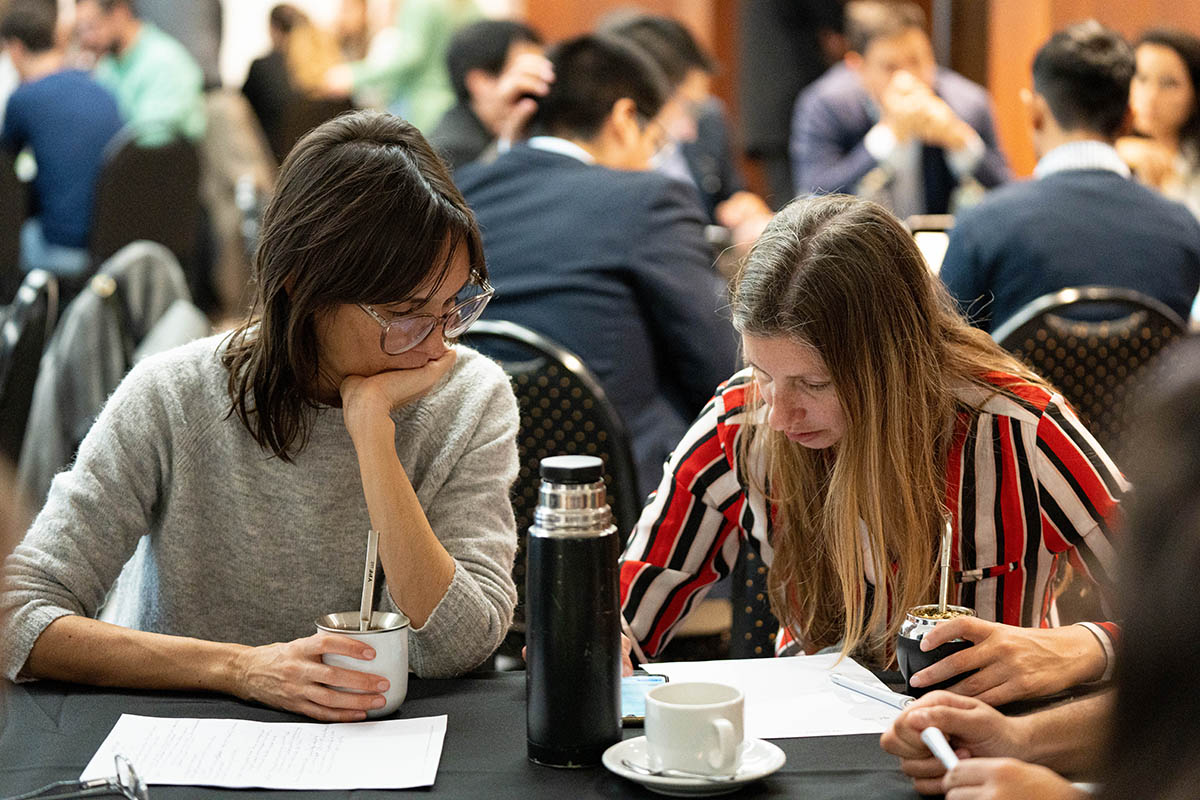
Argentinean national entities address sustainable mobility.
Mobility and transport are responsible for around 14% of total CO2 emissions in Argentina. Therefore, in its second NDC, the government has increased its climate ambition and recognized the priority of designing public policies from a transversal involvement, including the transport sector.
Therefore, the second day of the Meeting sought to consolidate the public sector, companies, civil society organizations and universities to articulate actions for Argentine cities to move towards more sustainable modes of mobility.
For the development of climate change mitigation measures in the transportation sector, local and national coordination is important and efficient mobility planning is an effective way to address it.
"The sustainability of transportation, and this is what we have to discuss and turn it into state policy, must think about sustainability of an environmental, social and productive nature. There is not only one sustainability or in any case there is one that is reached with a sum of all the rest", mentioned Sergio Federovisky, vice-minister of Environment and Sustainable Development.
The second day was framed within the framework of the National Sustainable Transportation Plan being implemented by the Government of Argentina. There were also panel discussions on topics such as energy transition in transportation, mobility planning with a gender perspective, successful experiences of sustainable mobility in Argentine cities, technological solutions for sustainable mobility, as well as the importance of the connection between ports and cities for transportation.
Other highlights were the presentation of the Manual for the Design and Implementation of Cycle Infrastructures in Argentina and the signing of an agreement between the Undersecretariat for Strategic Projects and Technological Development and the association Argentina en Bici to promote cycling projects as a mode of transport.
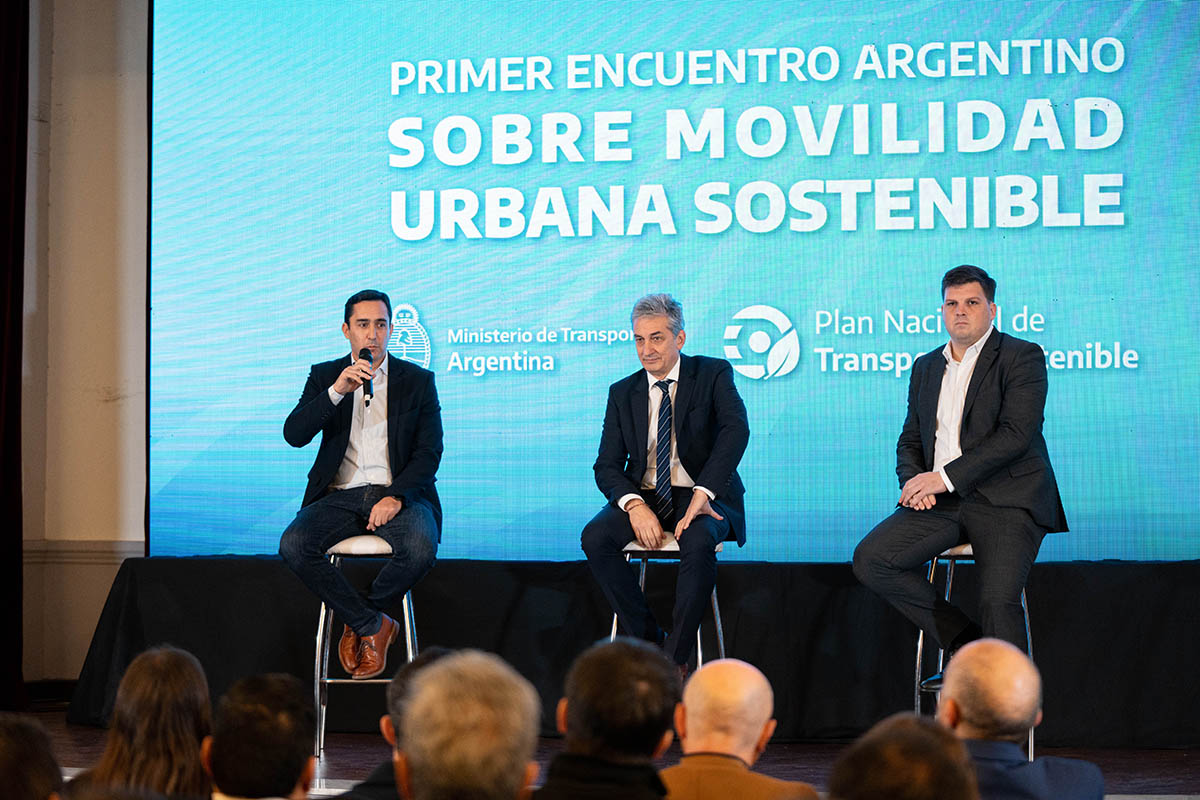
About Euroclima
Euroclima is a program funded by the European Union and co-financed by the German federal government through the Federal Ministry for Economic Cooperation and Development (BMZ), as well as by the governments of France and Spain through the Ministry of Foreign Affairs, European Union, and Cooperation.
The Program's mission is to reduce the impact of climate change and its effects in 33 countries in Latin America and the Caribbean, promoting mitigation, adaptation, resilience, climate investment and biodiversity. To this end, it is implemented according to the "Spirit of Team Europe" under the synergistic work of seven agencies: Spanish Agency for International Development Cooperation (AECID), AFD Group: Agence Française de Développement (AFD)/ Expertise France (EF), Economic Commission for Latin America and the Caribbean (ECLAC), International and Ibero-American Foundation for Public Administration and Policies (FIIAPP), Deutsche Gesellschaft für Internationale Zusammenarbeit (GIZ) GmbH, the UN Environment Programme (UNEP) and the United Nations Development Programme (UNDP).
For more information:
This email address is being protected from spambots. You need JavaScript enabled to view it.euroclima.org

